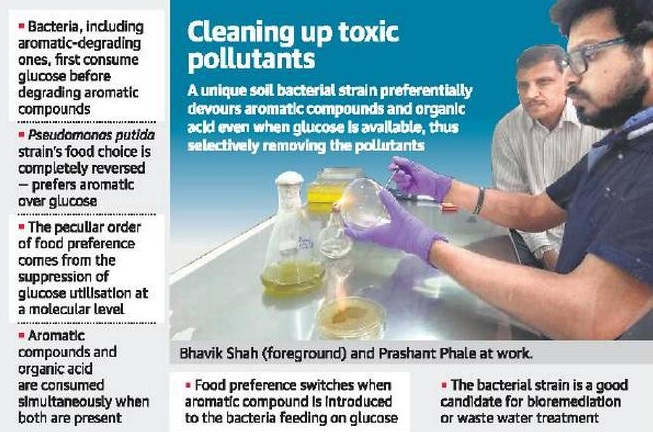
Bacteria to degrade aromatic compounds by IIT Bombay- Pseudomonas putida CSV86
Why is it in news?
- IIT Bombay researchers can selectively remove from the environment toxic, aromatic pollutants by using a unique strain of bacterium isolated from soil contaminated with petroleum products.
More in news
- Aromatic pollutants: These are-benzoate (sodium benzoate is used as a food preservative), benzyl alcohol and naphthalene.
- Pseudomonas putida CSV86:(1) Bacterial strain (Pseudomonas putida CSV86) is unique because of its preference for aromatic compounds and organic acid as a food source even when glucose is available.(2) The strain can degrade aromatics and organic acids simultaneously.
- Peculiar food choice:(1) Since breaking down aromatic compounds is difficult, bacteria generally prefer simple carbon sources such as glucose for obtaining energy.(2) This bacteria strain displays a completely different order of food choices- it first feeds on aromatic compounds and organic acids and only when this gets exhausted does it start feeding on glucose.
- Uses/Application: This bacterial strain is a very good candidate for bioremediation or waste-water treatment.

Source
The Hindu

